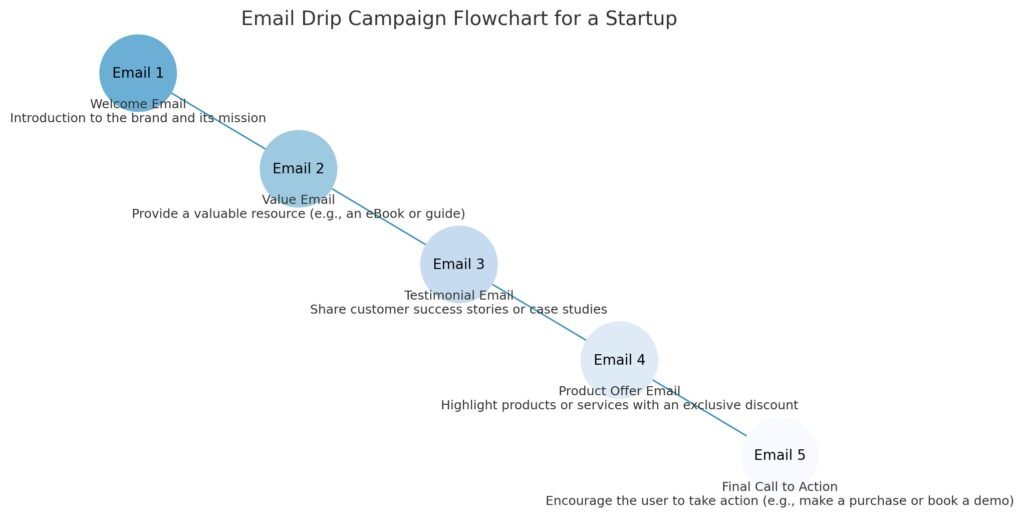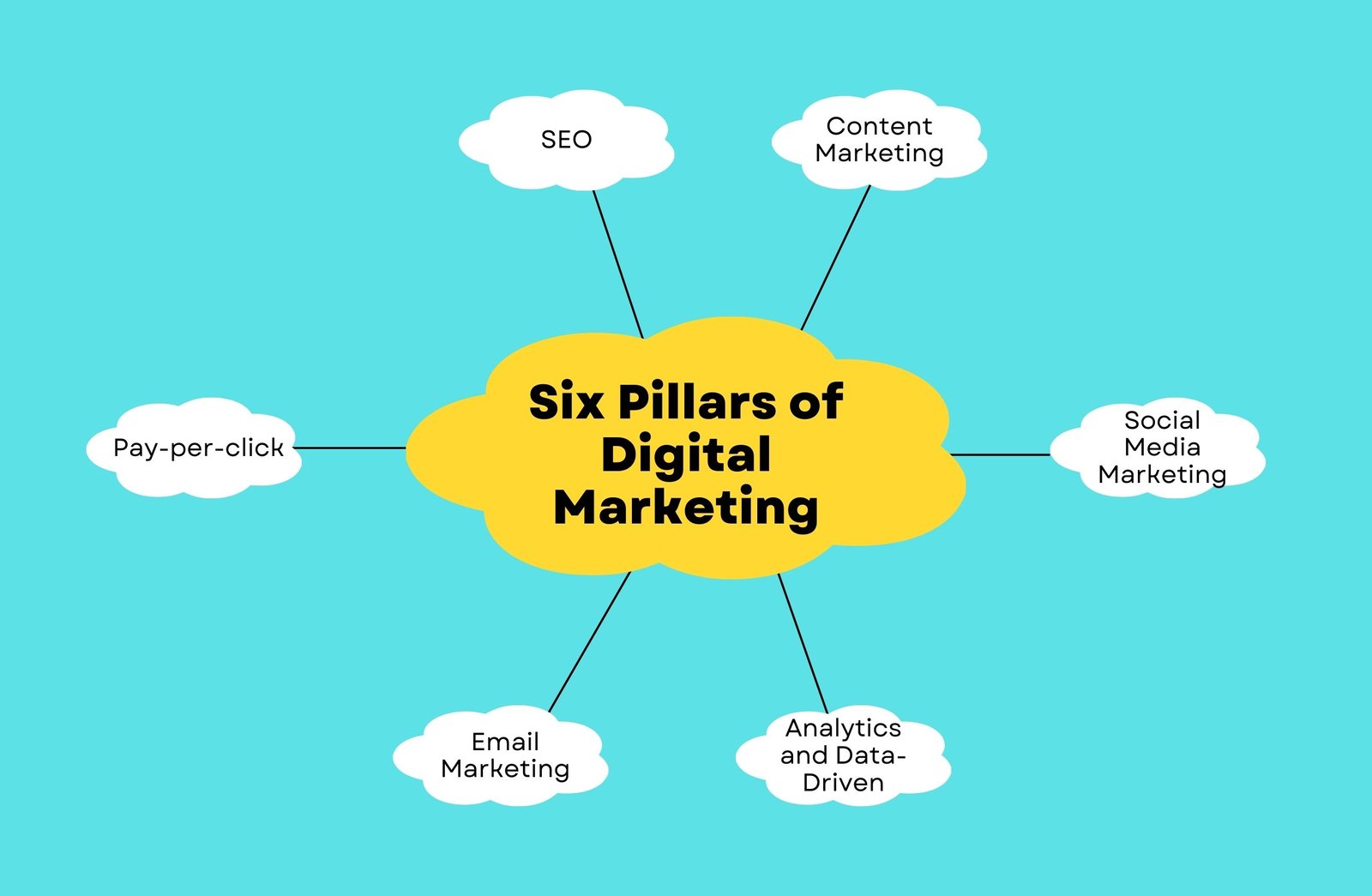Email Marketing for Startups: How to Build and Nurture Leads
In today’s competitive digital landscape, email marketing for startups stands out as one of the most effective strategies for building relationships and nurturing leads. As a startup, you’re constantly seeking ways to expand your reach, enhance conversions, and foster lasting relationships with your audience. Email marketing not only offers a personalized and cost-effective approach to achieving these goals but also empowers you with a powerful tool in the digital marketing arsenal.
In this comprehensive guide, we’ll explain how to build and nurture leads with email marketing for startups, from developing a strong email list to crafting the perfect campaigns that drive engagement and sales.
Why Email Marketing Matters for Startups
When you’re just starting out, every interaction with your audience counts. Email marketing for startups is one of the most cost-effective forms of marketing and helps establish direct communication with potential customers. Here are a few reasons why email marketing for startups is crucial:
-
- High ROI: According to several studies, email marketing boasts an impressive ROI (Return on Investment), with businesses earning an average of $42 for every $1 spent on email campaigns.
-
- Personalization: Emails allow you to craft tailored messages that resonate with your audience, improving engagement rates.
-
- Direct Communication: Unlike social media platforms, where algorithms control who sees your content, email marketing for startups ensures your message reaches the inbox directly.
-
- Building Trust: Regular, valuable communication through email helps build trust with your leads, which is essential for long-term business success.
How to Build a Strong Email List for Your Startup:
The Foundation of Your Email Marketing StrategyBuilding a targeted email list is the foundation of any successful email marketing strategy for startups. A quality email list doesn’t just consist of random contacts; it’s about targeting individuals genuinely interested in your startup’s offerings.
1. Offer Value Through Lead Magnets
To attract potential leads, you need to offer something valuable in exchange for their email addresses. This could be in the form of:
-
- Free eBooks or guides
-
- Exclusive webinars or workshops
-
- Discounts or free trials
-
- Industry reports or white papers
Ensure the content you offer aligns with your target audience’s pain points and needs. This will help you build a list of genuinely interested subscribers in your product or service.
2. Optimize Your Signup Forms
A common mistake many startups make is having complicated or hidden signup forms. Keep things simple:
-
- Place email signup forms in high-visibility areas on your website.
-
- Ensure your forms are mobile-friendly, as many email signups happen via smartphones.
-
- Make it clear what subscribers can expect from joining your list (e.g., newsletters, updates, exclusive offers).
3. Leverage Social Media
Promote your lead magnets on your social media channels to drive traffic to your email signup page. Social media platforms are perfect for reaching new audiences and encouraging them to join your email list.
4. Use Pop-Ups Wisely
Pop-up forms can significantly increase your email signups when used sparingly and effectively. Timing matters, so don’t overwhelm visitors immediately. Use exit-intent pop-ups or timed pop-ups that offer something valuable in exchange for their email address.
Crafting the Perfect Email Campaign for Startups
Now that you’ve built your email list, it’s time to start sending emails that engage, convert, and nurture leads. Here’s how to create effective email campaigns that stand out.
1. Segment Your Email List
One of the best practices in email marketing for startups is segmentation. Not all subscribers are the same, and by segmenting your list, you can send tailored messages that are more likely to resonate with each group.
Common ways to segment your list include:
-
- By demographics: Age, gender, location, etc.
-
- By behavior: Which pages have they visited, made past purchases, opened emails, etc?
-
- My interests: Based on their activity on your website or Engagement with previous emails.
2. Personalize Your Emails
Personalization is key to making your subscribers feel valued. Use your subscribers’ first names in the subject line or body of the email, and reference their previous interactions with your brand.
For example, if a lead downloaded an eBook on social media marketing, you could send a follow-up email offering a discount on a related course or product. This personalized approach makes your subscribers feel unique and more likely to take action.
3. Create Compelling Subject Lines
Your subject line is the first thing your audience sees, and it determines whether they open your email. To increase open rates:
-
- Keep it short and to the point.
-
- Create a sense of urgency or curiosity.
-
- Use action verbs that encourage the reader to open the email.
-
- Make sure your subject line reflects the content of the email.
For example, “Unlock Your 30% Discount on All Courses Today Only!” or “Are You Ready to Grow Your Startup Faster?” are attention-grabbing subject lines that will compel users to open the email.
4. Focus on Quality Content
When it comes to email marketing for startups, the quality of your content matters. Your subscribers are giving you their precious time, so make sure your emails are informative, engaging, and relevant to their needs. Some content ideas for your emails include:
-
- How-to guides
-
- Customer success stories
-
- Industry insights or tips
-
- Exclusive offers or discounts
The goal is to provide value in every email, keeping your audience engaged and increasing their likelihood of converting into loyal customers.
5. Use Visuals to Enhance Engagement
Incorporating visuals into your emails can significantly improve engagement rates. Whether it’s a product image, an infographic, or a relevant video, visuals break up text and make your emails more appealing. They can also help to convey information more effectively and make your emails more memorable, increasing the chances of conversion.
Nurturing Leads Through Email Marketing
Once you’ve started building your email list and sending engaging campaigns, it’s important to keep nurturing those leads. Nurturing leads through email involves sending consistent, valuable content that moves your leads down the sales funnel.
1. Set Up Drip Campaigns
A drip campaign is a series of pre-written emails sent to subscribers over time. These emails are strategically designed to guide leads through their buyer’s journey by providing relevant content at each stage. For example, a lead who downloaded your free eBook might first receive emails introducing them to your brand and offering valuable tips. Over time, you can send them information about your product or service, eventually encouraging them to make a purchase.
For example, a lead who downloaded your free eBook might first receive emails introducing them to your brand and offering valuable tips. Over time, you can send them information about your product or service, eventually encouraging them to make a purchase.
2. Monitor and Optimize Your Campaigns
Effective email marketing for startups is all about optimization. Track key metrics such as open rates, click-through rates, and conversion rates to understand what’s working and what isn’t.
-
- A/B testing: Test subject lines, email content, and visuals to see what resonates best with your audience.
-
- Adjust frequency: Too many emails can overwhelm your subscribers, while too few might cause them to forget about your brand. Find the right balance.
-
- Clean your list: Regularly remove inactive subscribers to keep your list clean and engaged.
- Clean your list: Regularly remove inactive subscribers to keep your list clean and engaged.

Conclusion: Building Long-Term Relationships with Email Marketing for Startups
In conclusion, email marketing for startups is an essential strategy for building and nurturing meaningful relationships with your audience. By focusing on creating a well-targeted email list, crafting personalized campaigns, and consistently delivering value, startups can establish trust and stand out in their industry. Testing, optimizing, and segmenting your emails further ensures that your efforts reach the right audience and yield maximum results.
As your startup scales, your email marketing strategy should evolve to meet the growing demands of your audience. By delivering relevant content and fostering trust through every interaction, you can effectively convert leads into loyal customers. For startups looking to refine their digital marketing efforts, partnering with a trusted marketing agency can provide the expertise and resources needed to take your strategies to the next level.








